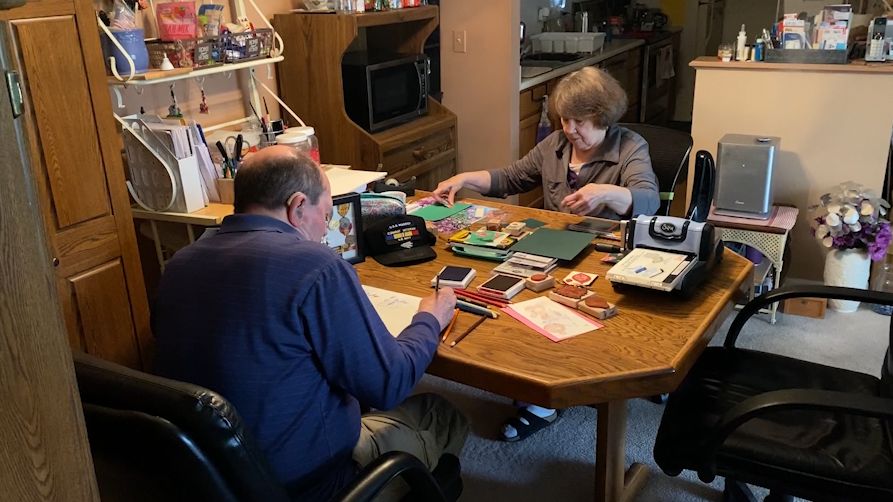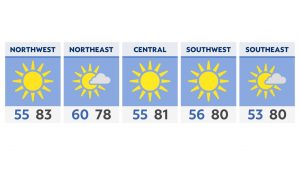MASON, Ohio — Traumatic brain injuries (TBIs) are a topic that experts continue to study to better understand the long-term effects. One concerning effect is the connection between TBIs and dementia, something one Navy veteran is raising awareness against.
Jim and Donna Leer are working on some Christmas crafts at their home in Mason.
These activities are important for Jim because he has both dementia and Parkinson’s disease — something that’s been very tough to adjust to.
“Dementia, Alzheimer’s is like a thief, a burglar that never stops,” Jim said. “It’ll take a bit here, a bit there and pretty soon enough bits are gone you can’t do anything. You can’t get it back.”
He served three tours in Vietnam, and worked as a master control operator for a local TV station in Cincinnati, and also worked as a fireman. But Jim had to retire from those roles when he noticed a change in his behavior when he started misplacing things — then also while driving — which prompted him to get evaluated.
After many tests, he was found to have early onset Alzheimer’s, a diagnosis at 54, which was found to be linked to a traumatic brain injury (TBI) he suffered while serving in Vietnam.
“I could not remember what I had done in the last six months, who I had worked with, nothing — except for reporting,” Jim said while recalling his memory after the incident.
Jim is one of many veterans experiencing this issue. Veterans with a TBI or Post Traumatic Stress Disorder (PTSD) have a 60 percent greater chance of developing dementia, according to the Alzheimer’s Association. It’s something that’s slowly taking its toll on Jim’s memory.
“I can’t remember my kids growing up,” he said. “We had a dog named Holly Bell, a cocker-spaniel, for 14 years, 16 years, and I can only remember one little bit.”

Donna and Jim Leer work on Christmas crafts at their Mason, Ohio home.
Donna says life has been very different for them both as she is now his primary caregiver.
‘I’m a pharmacist,” she said. “I’m a taxi driver. I’m a chef. I’m a social scheduler. I’m an advocate with the doctors. I go to all doctors’ appointments with him.”
Things she does unconditionally, building on their 51 years of marriage. But due to his health, it’s one that works best, by sticking to a normal routine.
“We walk at malls, we shop,” Donna said. “We go out to lunch, we try to do what normal people do. But we do it as a team.”
But through all the struggles, the Leers want their story to be a beacon for others to get the help they need.
“Maybe someone they know or a relative who might be showing some kind of signs but maybe hasn’t gone to a doctor. Then encourage them to get some treatment or some kind of a diagnosis hopefully,” Donna said.
The Leers say the Alzheimer’s Association has been a great resource for them in adapting to living with dementia.
“As the veteran population in Ohio continues to grow, the demand for high-quality senior care increases,” Amy Boehm, Alzheimer’s Association Health Systems Director for Ohio said. “The Alzheimer’s Association is excited and ready to support VA Medical Centers around the state to improve the clinical pathway for patients to receive an early diagnosis for dementia and quality care for the veteran and caregiver after a diagnosis.”
For more information on Alzheimer’s or dementia, please visit the Alzheimer’s Association website.




